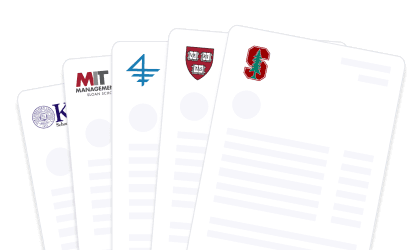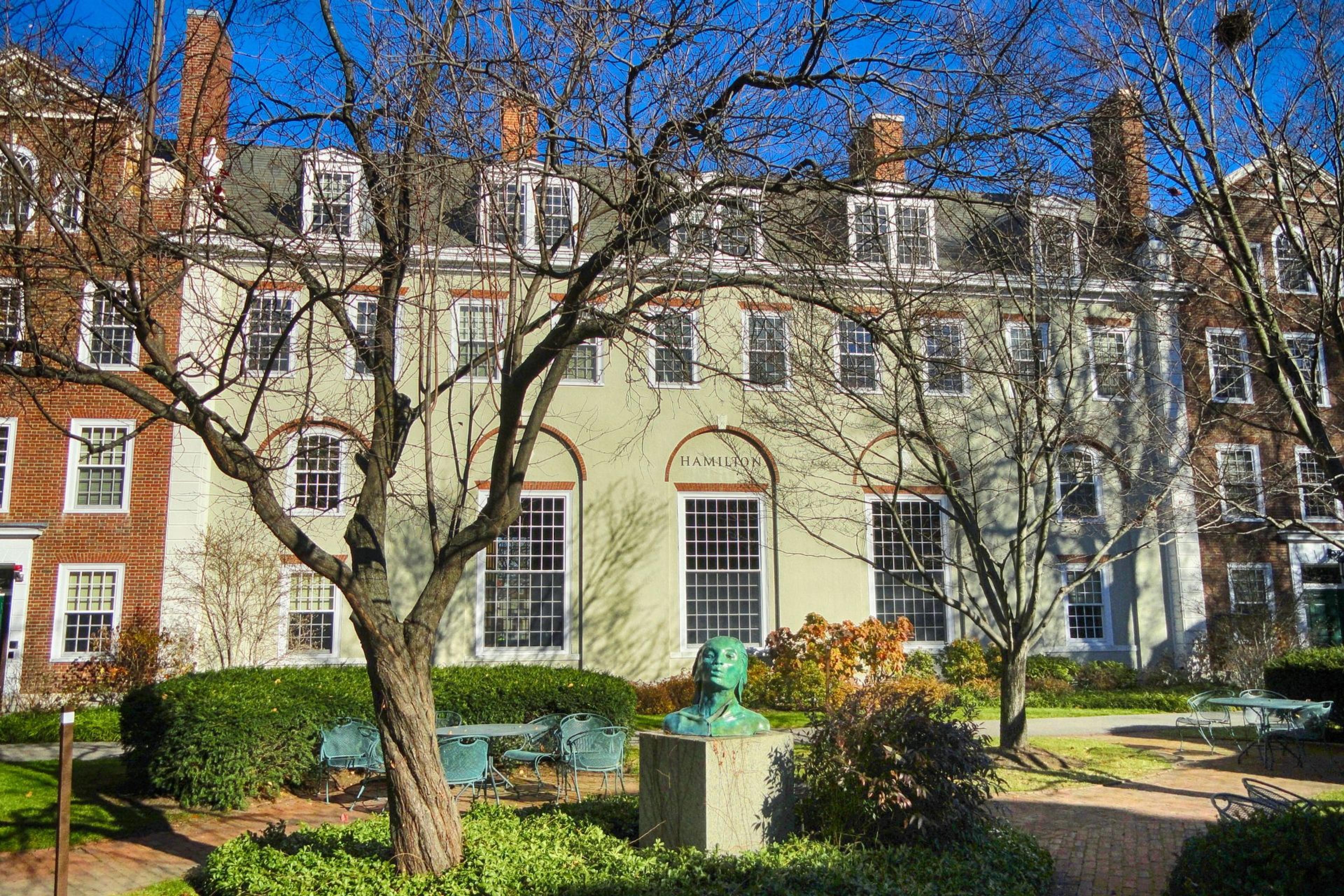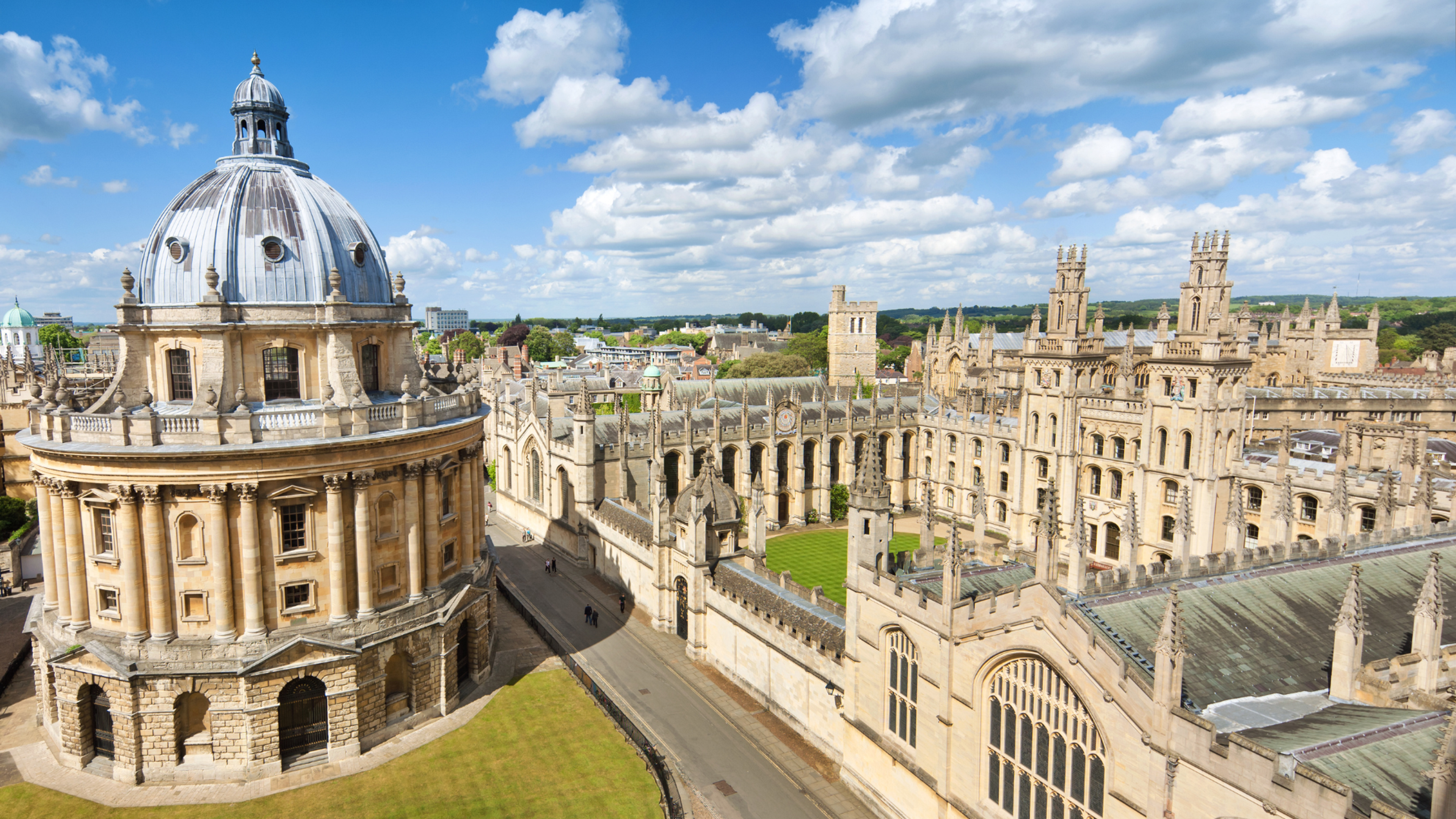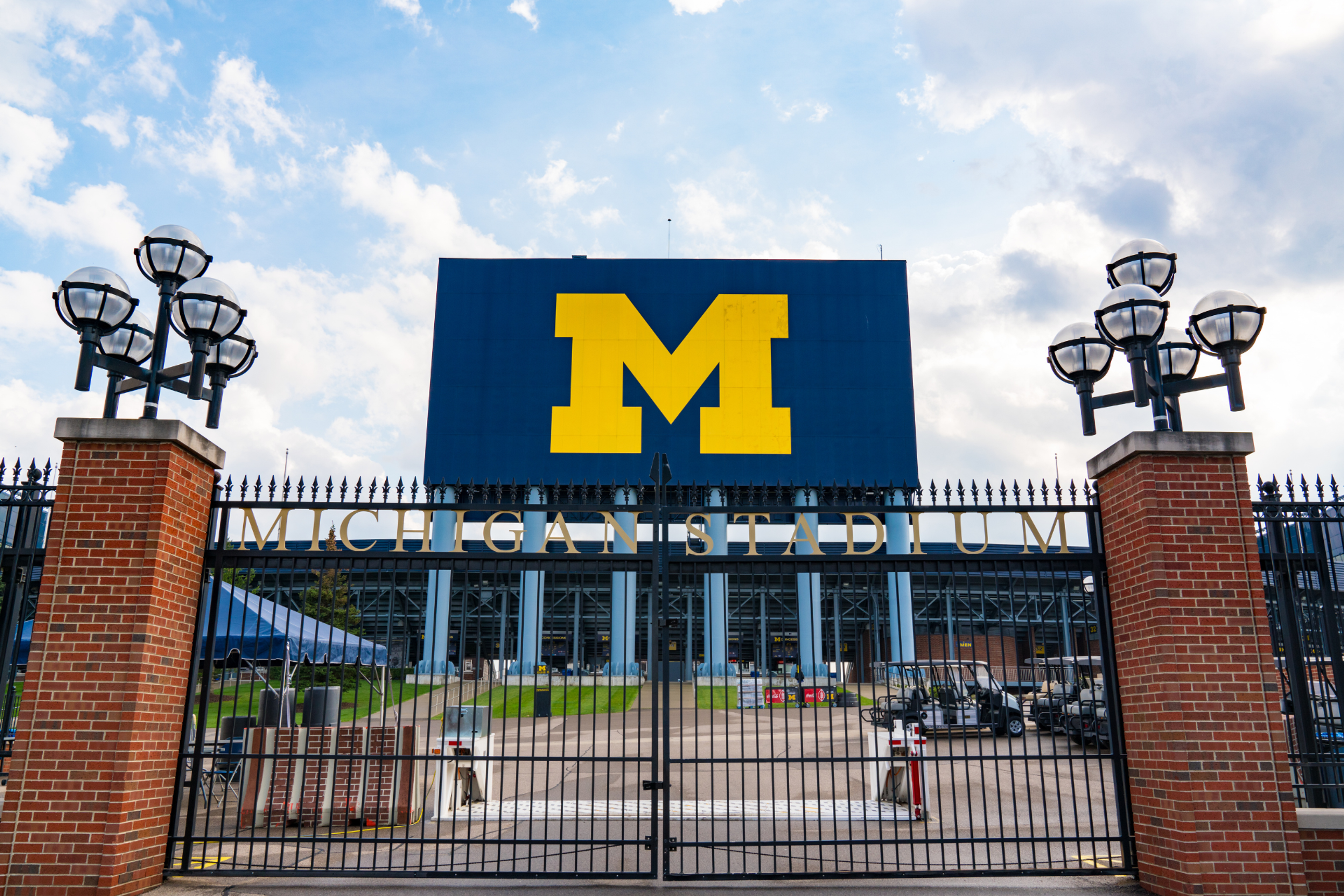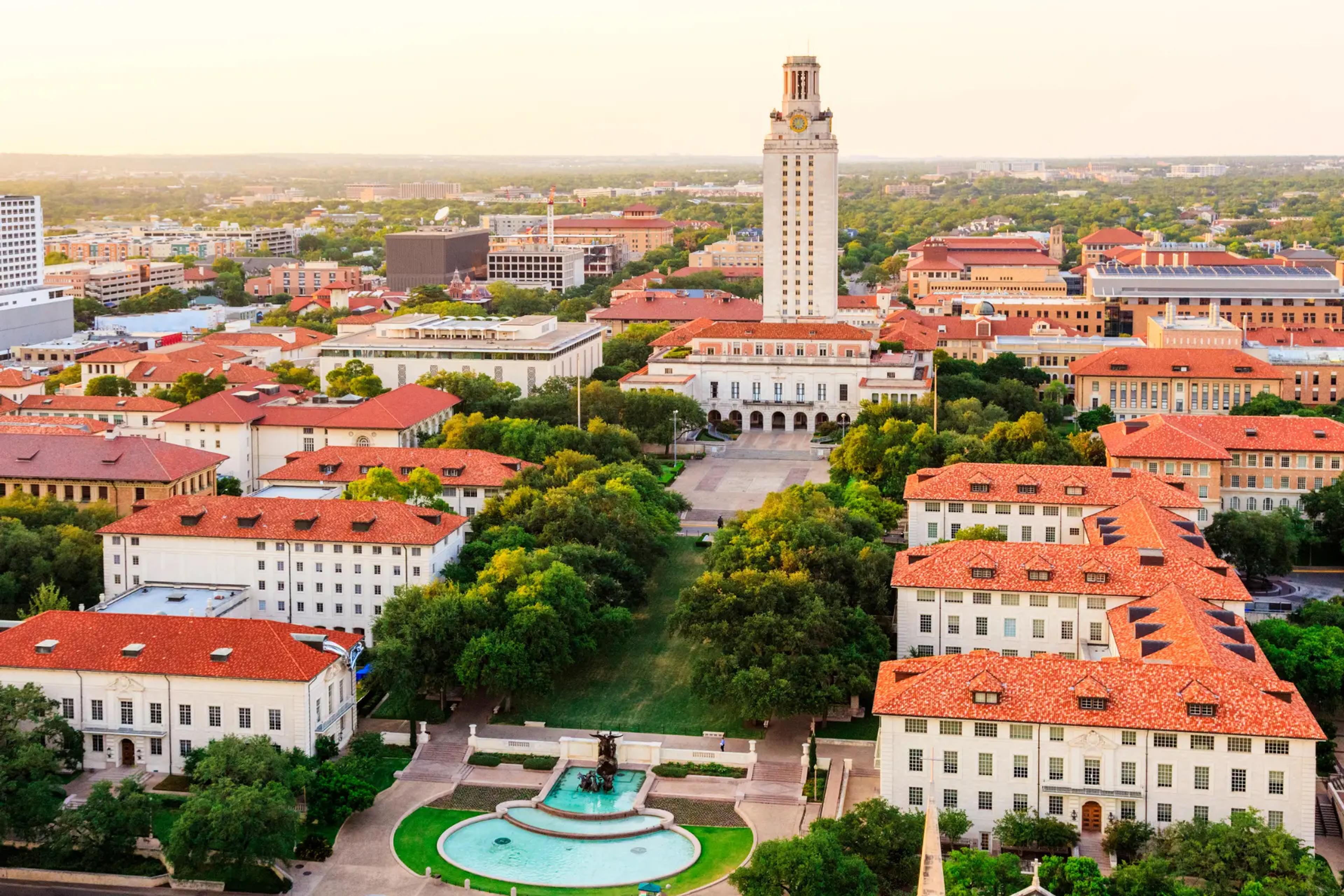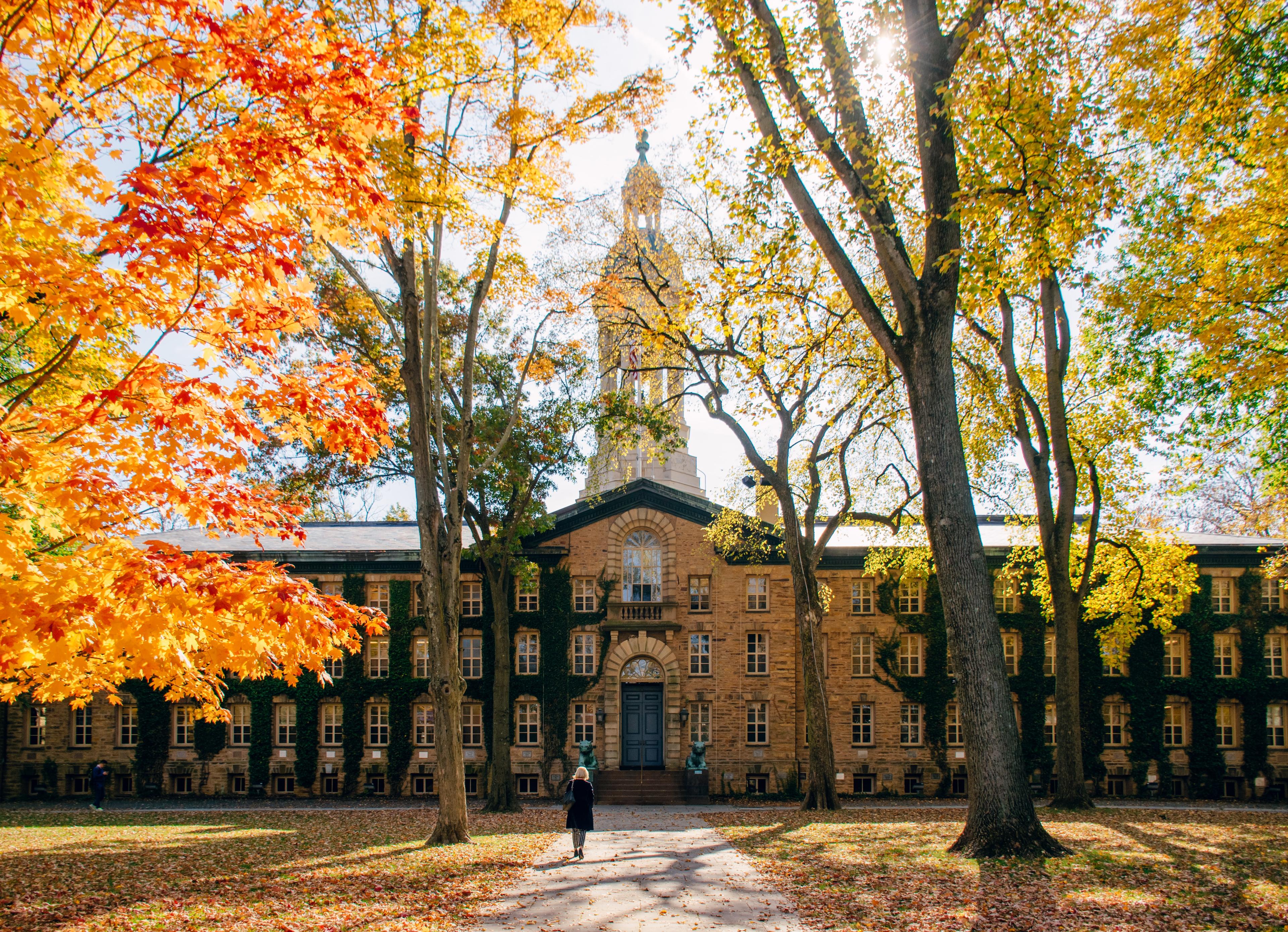
Join a free event
Learn from top coaches and industry experts in live, interactive sessions you can join for free.
Table of Contents
Brigham Young University, located in Provo, Utah, is a private university sponsored by the Church of Jesus Christ of Latter-day Saints. Established in 1875, BYU offers a diverse range of academic programs at the undergraduate, graduate, and doctoral levels.
The university is notable for several things. Most of its students are members of the Church of Latter-Day Saints (LDS) and follow an honor code that includes standards related to dress and grooming, academic honesty, and drugs and alcohol. It is consistently ranked as one of the best-value universities. Likewise, BYU is often ranked among the top universities for foreign language degrees in part because of the LDS church’s heavy emphasis on missionary service.
Can You Go to BYU if You Are Not a Member of the LDS Church?
While it was founded and is supported by The LDS Church, BYU embraces students of all faiths and beliefs. Admission decisions are based on academic merit, personal achievements, and character, rather than religious adherence.

Brigham Young University (BYU) Facts & Figures
Enrollment (Fall 2025):
- Total daytime students: 37,205
- Undergraduate students: 34,224
- Graduate students: 2,981
- Gender: ~50% female, 50% male
- Marital Status: 63% single, 17% married
Academics:
- Undergraduate majors: 202
- Undergraduate minors: 116
Admissions Stats (Spring/Summer/Fall 2025):
- Freshman admitted rate: 69.2%
- Middle 50% GPA: 3.86–4.00
- Middle 50% ACT: 28–32
- Middle 50% SAT: 1300–1430
Undergraduate Tuition
- Members of the LDS Church: $3,344 per semester
- Non-Members: $6,688 per semester
Undergraduate Cost of Attendance (Annual Estimates)
- Food and Housing
- On-Campus: $10,716
- Off-Campus: $11,668
- Other Expenses
- Books and Supplies: $400
- Personal Expenses: 2,016
- Transportation: $2,520
- Loan Fees: $60
- LDS Total
- On-Campus: $22,600
- Off-Campus: $23,552
- Non-LDS Total
- On-Campus: $29,488
- Off-Campus: $30,440

BYU Application Deadlines
Here are the application deadlines for freshman students
| Semester/Term | Application Opens | Priority Deadline* | Deadline | Decision Notification |
|---|---|---|---|---|
| Spring 2026 | Aug. 27, 2025 | Nov. 3, 2025 | Dec. 15, 2025 | Feb. 16, 2026 |
| Summer 2026 | Aug. 27, 2025 | Nov. 3, 2025 | Dec. 15, 2025 | Feb. 16, 2026 |
| Fall 2026 | Aug. 27, 2025 | Nov. 3, 2025 | Dec. 15, 2025 | Feb. 16, 2026 |
| Winter 2027 | Apr. 1, 2026 | - | Aug. 3, 2026 | Aug. 31, 2026 |
BYU Application Components
Transcript
Upon submitting your application, only an unofficial high school transcript is required. If admitted, an official transcript must follow.
Class registration relies on the official transcript being received and verified. BYU evaluates GPAs without weighting but considers the rigor of the coursework.
Letters of Recommendation
The BYU application requires three types of letters of recommendation:
- Seminary Recommendation
- High School Teacher Recommendation - Must have taught you a math, English, science, or social science class in your junior or senior year
- Additional Recommendation - Anyone who knows you well and is not a relative. For example, extracurricular supervisors or sports team coaches.
The recommender will receive an email containing a link to a form that they must complete. This form asks recommenders to rate the student on various criteria:
- Demonstrates integrity and trustworthiness, and fulfills commitments
- Creates a safe environment for classmates to participate and share observations
- Demonstrates problem-solving ability and sound thinking
- Sets and achieves challenging goals
The second part is a section for open-ended responses to specific prompts, such as “What evidence do you see of the applicant challenging themselves academically?”
Please note that BYU only accepts recommendations through this specific form within the application. It is important to communicate this to your recommenders to ensure they do not attempt to submit a separate letter.
Ecclesiastical Endorsement
All applicants, regardless of their affiliation with the LDS church, must submit an ecclesiastical endorsement. This endorsement includes agreeing to abide by the BYU Honor Code and the Dress and Grooming Standards and meeting with two religious leaders to verify that you understand the standards and are capable of committing to them.
Standardized Test Scores
BYU is test-optional through Winter 2026. However, as it states on the application, "Applicants are encouraged to submit a test score if they feel it is a good representation of their academic abilities."
If you have a lower GPA, it's more important that you do well on the test. If you have a high GPA but score low on the test, you probably won't want to submit the score. The ideal situation, of course, is that you have both a high GPA and test score.
ACT vs. SAT
Take the test that is best for you. Many students naturally score higher on one test than the other. We recommend taking a practice test for both — see how you score and how you feel during each. How was the timing and pacing of questions? How did you do on each section?
BYU SAT Requirements & ACT Requirements
As the BYU site states: "Freshmen applicants who have completed sufficient accredited high school work will have the option to apply with or without an ACT or SAT test."
See here for ACT/SAT guidelines for transfer applicants, international applicants, homeschooled applicants, and concurrent enrollment applicants.
For more info, read The ACT vs. SAT: Which to Take and How to Ace Both and The Best Free Resources to Prepare for the ACT and SAT.
BYU Application Essays
The essays are one of the most important aspects of the application. Freshmen applicants are required to write essays on five topics:
- Describe a topic, idea, or experience that you find so engaging that it makes you lose all track of time. What have you done to learn more or engage further in the topic, idea, or experience? What resources do you use to learn more? (1500 character limit)
- Have you become aware of significant needs in your family, school, and/or community? Please explain how you have worked toward meeting those needs. (1500 character limit)
- Briefly describe a time when your efforts fell short, a goal was not accomplished, or an aspiration was not achieved. What steps did you take to recover from this defeat? What resources did you use? How and why are you different today? (1500 character limit)
- We strive to create a rich and varied educational environment through admitting students with a wide range of:
- Goals
- Interests
- Skills and talents
- Life experiences
- Perspectives
- Cultures
Tell us your story. What will you contribute to our university community? Be specific. (1500 character limit)
- A BYU education will be spiritually strengthening. BYU students have a unique opportunity to seek learning by study and by faith. Describe the reasons you want to learn in an environment like this. (1500 character limit)
You will also be asked to write about two additional activities to help the AdCom get to know who you are as a person. You'll have 300 characters to describe the activity and then 1500 characters to explain why you chose to participate in it and how you benefited from it.
BYU Essay Tips
- Weave a cohesive narrative. Your application should show who you are, where you've been, and where you're going.
- Don't exaggerate. You don't need to have solved cancer or won a Nobel prize to get into BYU. While you do need to be involved in activities, it's more important that you own what you have done and can explain the significance of it.
- Show impact. How have you impacted your communities? How has your involvement in clubs, sports teams, etc. made those groups better? The BYU AdCom wants to admit students who will make BYU a better place. By showing that you've done that in your other activities, you'll make a stronger case for why they should let you in.
- Get deep. The key to powerful essays is sufficient self-reflection. Take time to understand why you made the decisions you did throughout high school, what you care about in a collegiate experience, why you actually want to go to BYU (specifically), how you will make the most of your time there, and what you're interested in long-term.
BYU Essay Examples

Example BYU Essays From Admits
Use these example essays from successful BYU applicants to help you write the best possible essays
Activities
In addition to the essays, BYU applicants will also need to select two activities to go deeper into (1500 character limit). As BYU states:
"While you have most likely been involved in many different activities, you will have an opportunity to write about two activities that will help us get to know you as an individual. You will be able to describe the activity, how long you have participated in it, and how you have benefited from your participation."
New AI Essay Policy & Tips
Since the 2023 application cycle, BYU has added a new step to the application process. You will be required to agree to an Essays and Activities Commitment and adhere to the following:
- You must not pay anyone to assist you with your application
- You may not use generative AI tools (such as ChatGPT) to write your responses
- The work you submit must be entirely your own
- You may seek feedback from others to ensure clarity and effectiveness in responding to prompts
- You may use tools like Grammarly to aid in the writing process
If you have any questions regarding your essays, BYU offers free help through representatives. Be aware that BYU uses software to analyze all admission essays and responses and may revoke admission offers to any student whose essay is determined to have been generated by AI or plagiarized in any form.
Additionally, BYU offers specific essay advice on their website:
- Understand the principles of AIMS and use them in your application
- Generally, prioritize recent experiences over older ones
- Avoid repetition -your essays should not merely duplicate your resume. Instead, use them to showcase different facets of yourself and your experiences
- Remember that the only way BYU will know things about you is for you to explicitly tell them. The admissions committee cannot read your mind; the picture they’ll see is the one you put right in front of them.
- Your essays must reflect your own words and ideas. While others can assist in reviewing them, the content must be your authentic work.
- Above all, be genuine!

BYU Aims
The BYU Aims outline the goals of a BYU education. Importantly, they are also part of the criteria that the Admissions Committee uses to evaluate potential applicants.
On its website, BYU outlines the AIMS:
"BYU seeks to develop students of faith, intellect, and character who have the skills and the desire to continue learning and to serve others throughout their lives. These are the common aims of all education at BYU. Both those who teach in the classroom and those who direct activities outside the classroom are responsible for contributing to this complete educational vision. A BYU education should be:
- Spiritually Strengthening
- Intellectually Enlarging
- Character Building
- Leading to Lifelong Learning and Service"
In your application, it's crucial to weave in the different Aims. BYU wants students who embody these characteristics; by showing that you do so, you are more likely to be admitted. To get started, make a list for each Aim with any activities/extracurriculars, awards, honors, themes, etc. from your life. Then, you can assign each to a different part of the application. See more about the BYU Aims below.
How to Prepare for BYU Admissions as a High Schooler
Preparing for the BYU application starts years before the deadlines. Here are several things to start doing in your underclassman high school years:
- Join clubs and take leadership positions
- Participate in service projects and organizations
- Take AP classes and do well in them (PS: Read What AP Test Scores Do Colleges Accept?)
- Pursue extracurricular activities
- Cultivate good relationships with teachers, school counselors, and church leaders (bishop, stake president, etc.)
What GPA Do You Need to Get Into BYU?
BYU sets high academic standards for admission, with the middle 50% GPA of admitted students ranging from 3.86 to 4.00 — indicating that most students have achieved straight As or nearly so.
This places BYU among the most competitive private religious universities in the nation. As BYU continues to grow in prominence, competition for admission intensifies. While the university takes a holistic approach to reviewing applications, a higher GPA significantly enhances your chances of acceptance.
Aim for an unweighted 4.0 GPA; if you fall short, strive for at least a 3.86. If your GPA is lower, compensate by excelling in the standardized test. Additionally, take AP-level courses to raise your weighted GPA and demonstrate your readiness for college-level academics.

Expert Tips on How to Ace Your BYU Application
1. Paint the picture of a BYU student
On its website, BYU says that there is “no secret formula for admission.” They consider all parts of the applicant holistically and are looking for the AIMS of BYU Education (see above). These principles guide the entire application process, so it's crucial to embody them across all aspects of your application.
- Spiritually Strengthening – They recommend that applicants graduate from the LDS seminary and arrive spiritually prepared. The goal of the university is to provide a spiritually uplifting environment in which to gain an education.
- Intellectually Enlarging – Prospective students are advised to pursue challenging coursework in high school and maintain involvement in extracurricular passions. This dual commitment prepares students for academic rigor and personal growth.
- Character Building – Applicants should be just as strong morally as they are mentally; they should have a solid work ethic, be resilient, and be honest.
- Lifelong Learning and Service – One unofficial motto of BYU is, “Enter to learn, go forth to serve.” Service is a major component of the LDS church and the school, and applicants should have a love of and commitment to serving others.
To align with BYU's expectations, highlight your academic readiness, spiritual preparedness (for LDS applicants), diligence, and alignment with BYU's values. BYU seeks students who will uphold its honor code, prioritize academic excellence, and contribute positively to the campus community.
2. Engage Meaningfully in Extracurricular Activities
Don’t pursue activities that you think BYU “wants” to see in its applicants. Instead, find what brings you joy, and develop your talents in those areas, which may include but are not limited to:
- Arts
- Athletics
- Church
- Community
- Employment
- Humanities
- Service
- STEM
BYU doesn’t care about what you spend your time on (to a certain extent), but rather how you spend your time. Are you becoming a better person? Developing new skills? Contributing to the community? Taking on leadership positions?
As stated on its website, BYU encourages applicants to illustrate their impact through specific examples of meaningful community involvement in their application essays. Don’t take this advice lightly.
Read: How to Build the Best Extracurriculars for College
3. Choose Between the ACT and SAT Based on Your Strengths
BYU holds no preference for either the ACT or SAT, so it's important to select the test that aligns best with your skills and strengths. While both exams cover similar content areas, they differ significantly in format and approach.
Although BYU's average GPA is notably high, the average ACT/SAT scores are slightly less competitive. This presents an opportunity for applicants to distinguish themselves through strong standardized test performance. Each year, the average ACT scores of admitted students increase, so aim for a higher-than-average score.
We recommend taking practice tests for both the ACT and SAT to determine which one you perform better on. Develop a comprehensive study plan focusing on improving your weaker areas. Avoid last-minute cramming; preparing for standardized tests requires months of consistent practice, studying, and retaking practice tests to enhance your performance.
By strategically selecting and preparing for the ACT or SAT, you can optimize your chances of achieving a competitive score that strengthens your BYU application.
4. Graduate from Seminary
Historically, graduating from seminary was a crucial requirement for LDS applicants seeking admission to BYU, and it continues to hold significant importance. This achievement not only aligns with BYU's core value of "Spiritually Strengthening" but also signifies your readiness for the university's spiritually enriching environment. Additionally, seminary graduation enhances your connection to potential recommenders, who can serve as mentors and advocates in your application process.
5. Invest in Your Essays
The BYU admissions committee has a specific formula that weighs different parts of the application. Supposedly, one of the most important factors, if not the most important, is the essays. A compelling essay has the potential to offset lower test scores or GPA and illuminate aspects of your candidacy that might otherwise go unnoticed.
Craft a cohesive narrative in your essays that remains focused and builds towards a clear point. Ensure your responses directly address the prompt, reflecting consistently on their relevance to your personal experiences. Your essays should be uniquely yours; if someone else could write the same essay, you probably have some editing to do.
6. Develop Leadership Skills – BYU Values Future Leaders
While listing extracurricular activities is essential, elevating yourself to leadership positions within those activities significantly enhances your prospects for admission to BYU.
Holding leadership roles demonstrates a deep commitment to your interests, cultivates effective communication and interpersonal skills, and showcases your potential for high achievement. BYU actively seeks candidates who show initiative and the capacity to lead, making leadership experience a compelling asset in your application.
7. Foster Meaningful Connections with BYU Staff
All colleges aspire to admit students who want to go to their school. By showing genuine interest in the university’s specific programs, the AdCom will see that getting in means more than checking a box. There are many different ways to do this, but here are a few ideas:
- Participate in campus tours
- Attend on-campus events (Examples: BYU Education Week, seminars, weekly forums, sporting events, sports camps, FSY, plays/musicals, etc.)
- Reach out to the BYU admissions counselors; ask for guidance and inquire about trends they’ve seen in the admissions process
By actively participating in these activities, you not only gain a deeper understanding of BYU but also showcase your genuine commitment and enthusiasm, thereby strengthening your candidacy for admission.
8. Bonus Tip: Take Foreign Language Courses
While not a formal recommendation for admissions, the BYU AdCom weighs classes differently based on certain factors. For example, Honors and AP classes are weighted more heavily than base-level classes. Also, BYU is rumored to pay extra attention to foreign language classes. Another unofficial motto of the school is, “The world is our campus,” and the curriculum and standards emphasize the importance of a global education. The BYU Study Abroad Programs are very strong, and over 60% of the student body speaks multiple languages.
By enrolling in foreign language courses, you demonstrate your readiness to contribute to this global perspective, potentially enhancing your application to BYU.
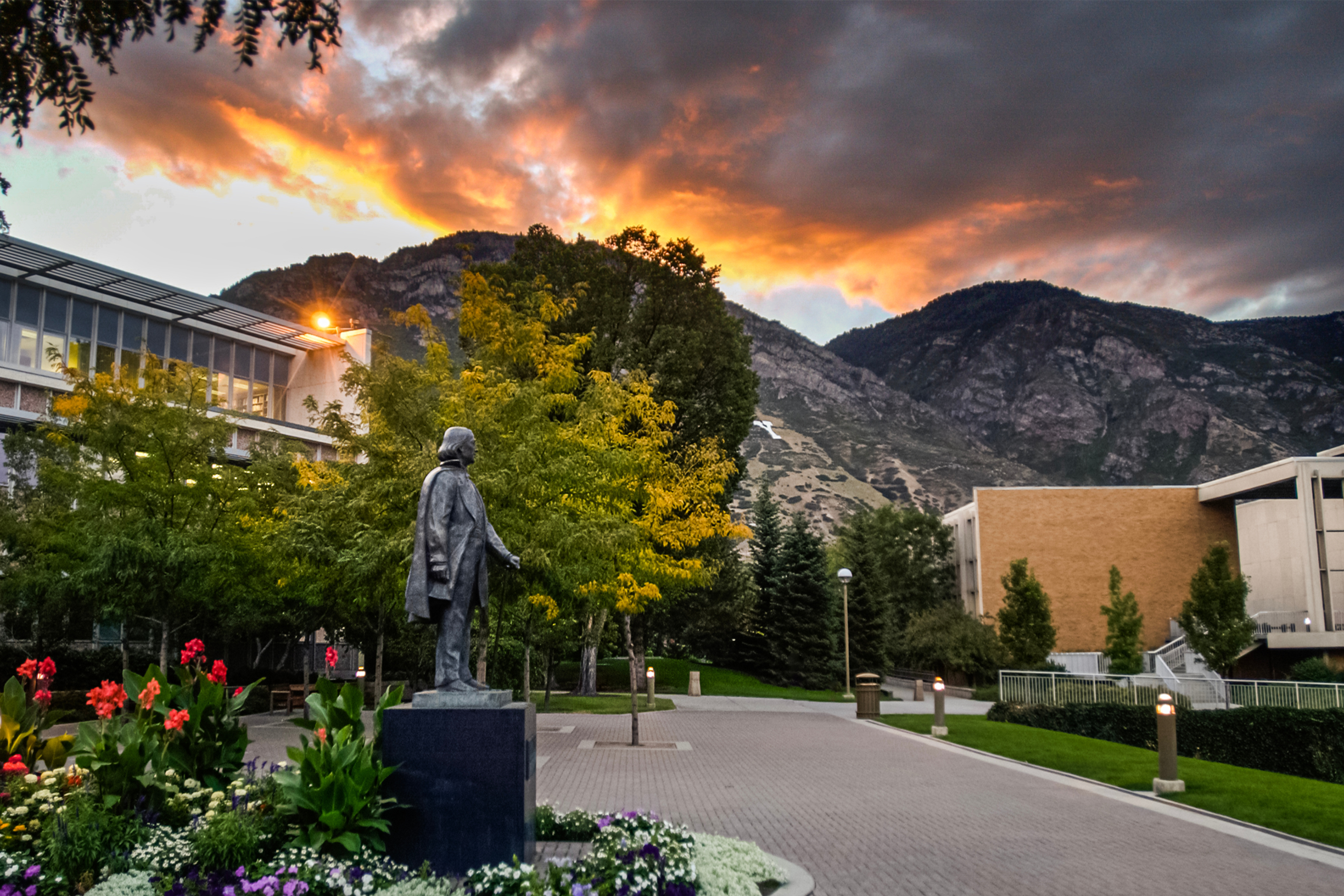
Get Into BYU With the Help of an Expert
Navigating the college application process can be intimidating, but with the guidance of experienced coaches and resources, you can approach it with confidence and clarity. Our team offers a variety of undergraduate admissions coaches who specialize in every aspect of the application journey. Below are some of our top undergrad admissions coaches; see all those with BYU experience here.
Here are several other resources to help you navigate through your applications:
- How to Write a College Application Resume
- The Top 40 College Scholarships
- 4 Tips to Elevate Your College Essay
- Top Questions to Ask a College Admissions Officer
FAQs
Does BYU require a foreign language?
- No, Brigham Young University (BYU) does not require a foreign language for admission. However, having completed foreign language courses in high school can enhance your application and demonstrate academic diversity. Some majors might have specific foreign language requirements, so it's always a good idea to check the program details.
What are the BYU admission requirements?
- To gain admission to BYU, applicants must submit the following:
- A completed online application form
- Official high school transcripts
- An ecclesiastical endorsement
- Five essays and two additional activities
- Optional ACT or SAT scores
- Three letters of recommendation
Additionally, BYU considers your high school GPA, extracurricular activities, leadership roles, and service experiences.
Is BYU test-optional? What are BYU's SAT/ACT requirements?
- Not anymore. BYU had adopted a test-optional policy until winter 2026. Submitting test scores can strengthen your application, especially if your scores are above the university's average range:
- SAT: 1290-1440
- ACT: 27-32
How many credits do you need to get into BYU?
- BYU does not specify a minimum number of high school credits required for admission. However, a strong college preparatory curriculum is recommended, including:
- 4 years of English
- 3-4 years of mathematics
- 2-3 years of science
- 2 years of social science
- Additional coursework in foreign language, arts, and technical education can be beneficial.
Browse hundreds of expert coaches
Leland coaches have helped thousands of people achieve their goals. A dedicated mentor can make all the difference.














